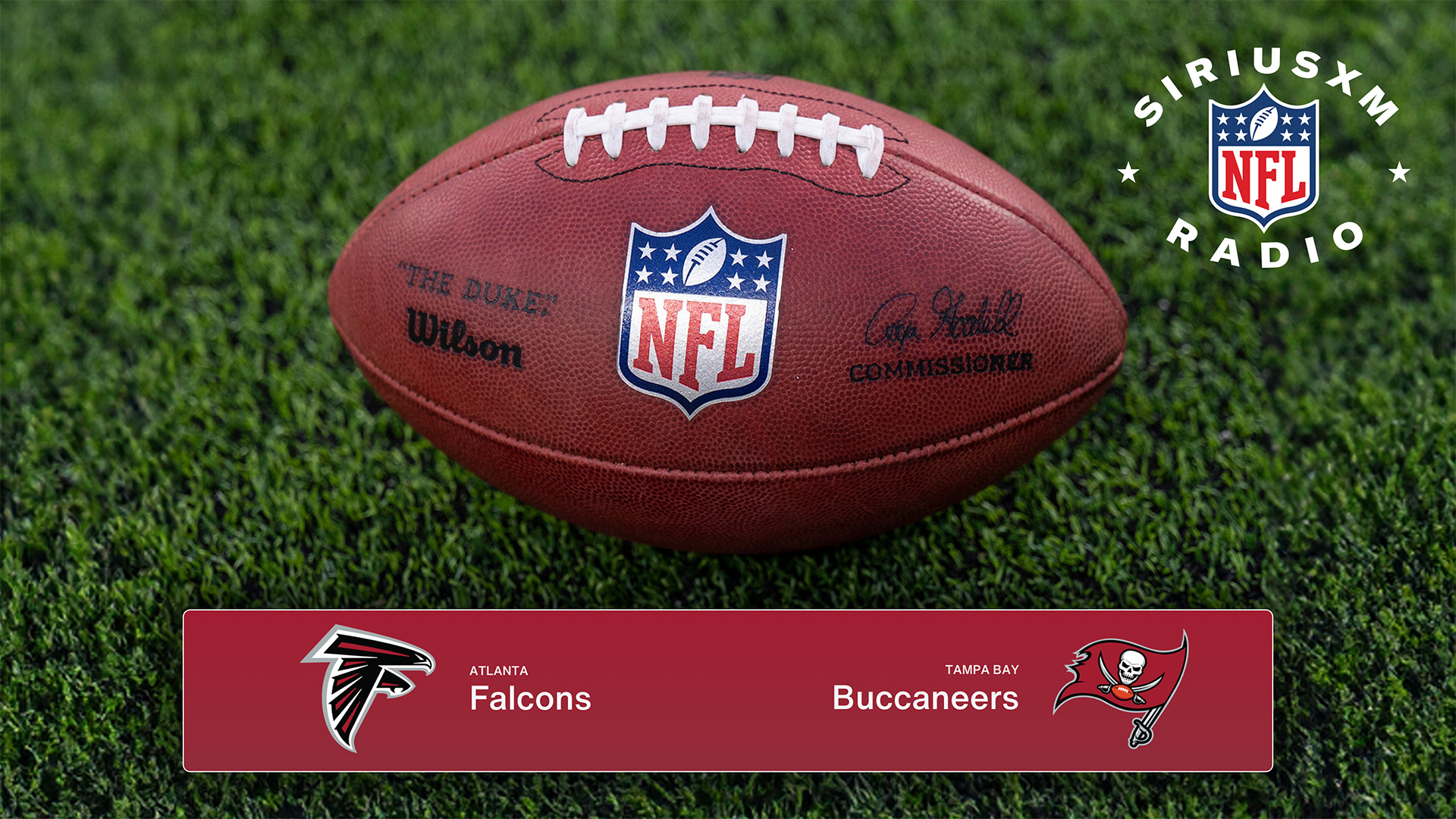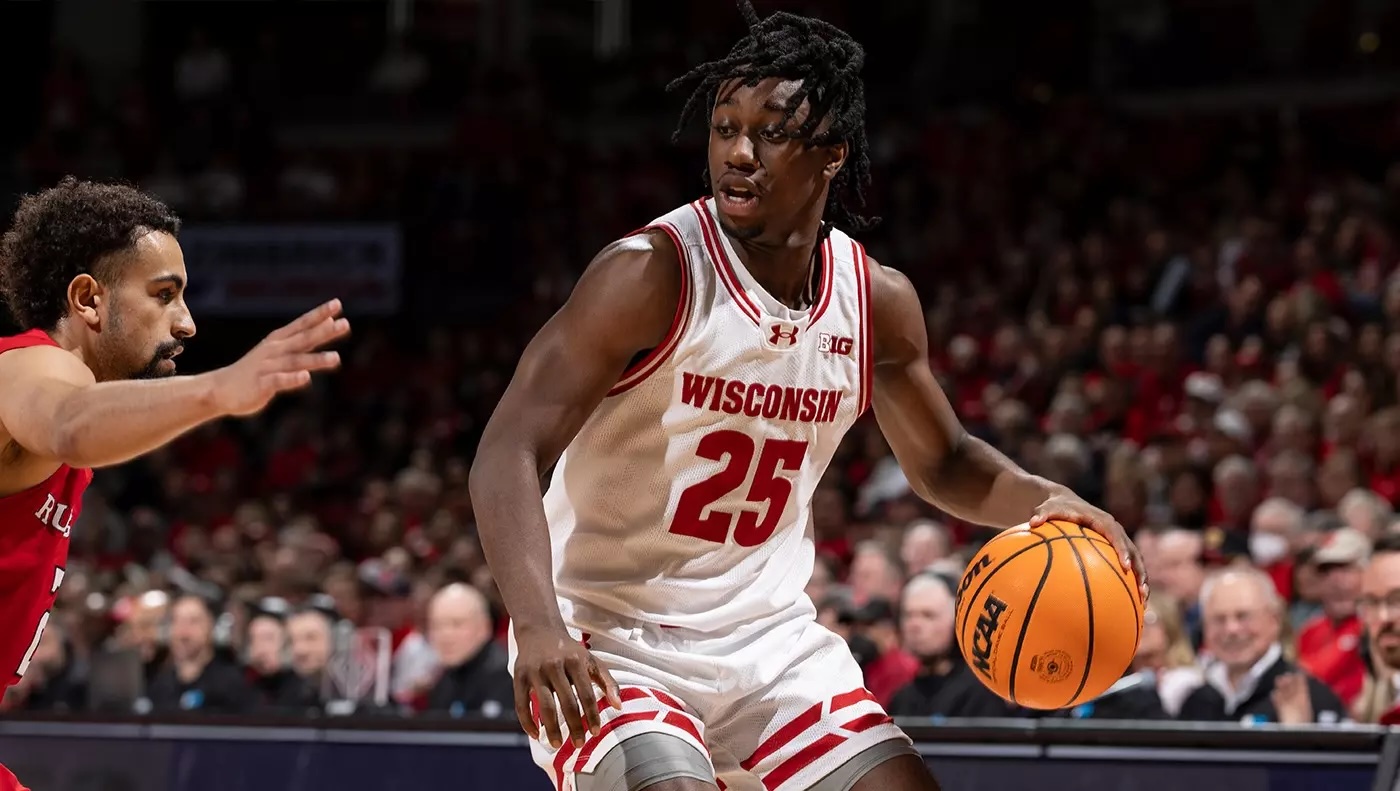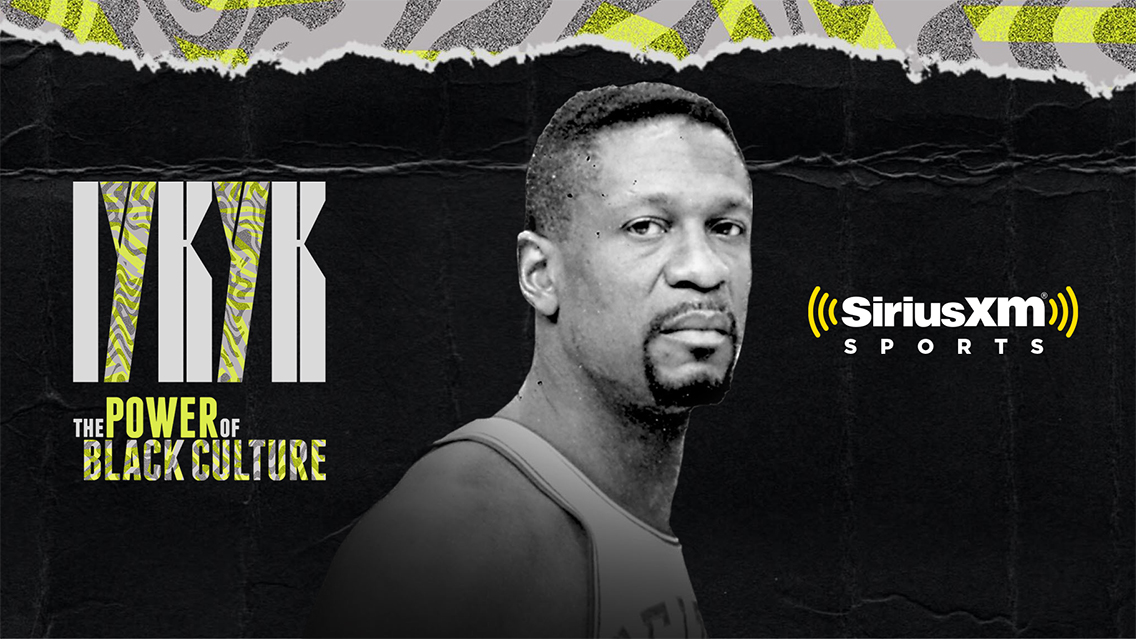
In celebration of Black History Month, Amietee Fuondjing, a contributor from SiriusXM’s Content Operations team in D.C., remembers one of his inspirations — NBA great Bill Russell — who passed away in July 2022.
Being a 20-something-year-old basketball fan, my legends are naturally from the NBA’s modern era: superstars like LeBron James, Kobe Bryant, and Michael Jordan.
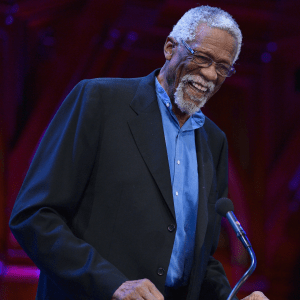 I mainly knew Bill Russell for handing out the Finals MVP trophy to the best player at the end of each playoffs. To me, he seemed like just another graceful relic from the prehistoric NBA in which he won 11 NBA championships. However, after reading his memoir written with William McSweeny, Go Up for Glory, I learned “graceful relic” doesn’t even begin to cover it. Russell also co-authored the 1979 book Second Wind: The Memoirs of an Opinionated Man, which delves into his experiences and offers insightful teachings.
I mainly knew Bill Russell for handing out the Finals MVP trophy to the best player at the end of each playoffs. To me, he seemed like just another graceful relic from the prehistoric NBA in which he won 11 NBA championships. However, after reading his memoir written with William McSweeny, Go Up for Glory, I learned “graceful relic” doesn’t even begin to cover it. Russell also co-authored the 1979 book Second Wind: The Memoirs of an Opinionated Man, which delves into his experiences and offers insightful teachings.
The same guy who told Shaquille O’Neal, Kareem Abdul-Jabbar, Dikembe Mutombo, and others he would “kick [their] ass” in basketball at the 2017 NBA Awards definitely lived a life of walking the walk.
So, in light of his 11 world championships, here are 11 lessons we can all learn from the great Bill Russell’s life.
1. All that glitters isn’t gold
In his prime, Bill Russell was a superstar player who made 1960s superstar money. $100,001-a-year, one more dollar-a-year than Wilt Chamberlain.
But did Russell worship money? The answer is no. The proof? In the summer of 1956, Russell rejected Harlem Globetrotters owner Abe Saperstein’s $50,000 offer to skip the Olympics and play for his famed exhibition team. It’s safe to say Saperstein’s prejudiced impulses did not sit well with Russell during the failed recruitment.
Although Bill Russell himself would admit his reasons for rejecting that offer and similar others were not always self-righteous, he never allowed himself to be tricked by fool’s gold. For having every economic excuse to be vulnerable in that moment, well done Russell.
2. Always be a professional
“Professional athletics is just like any other profession – just that. A profession. You always do the best you can.”
Russell certainly lived by those words. What’s more professional than traveling aboard suspect airliners, lodging in cities where you’re unwelcome, and then having to shut out racial slurs from the crowd, all the while nursing the temper of a coach appropriately nicknamed “Red”? All in the name of a sport?
Indeed, that’s what made Russell one of the great examples of a professional athlete. He always played 48 minutes’ worth of his best game, regardless of whether he was competing for a world championship or just playing out the string in early March.
Everything Russell’s team asked of him he provided. 11 championships later, I would say he overachieved.
3. Integrity over FOMO
Russell was never one to internalize the fear of missing out (or FOMO), especially when his human dignity was on the line.
His integrity was on full display during the NBA All-Star exhibition tour following the 1958 playoffs. After learning he would yet again have to endure the undesirable hotel accommodations available to “Negroes,” Russell marched right back to the airport and flew home.
It cost Russell one-quarter of his salary that year and the chance to be recognized beside his all-star peers. Although Russell took a financial hit, the future Hall of Famer revealed later he would’ve made the same decision in the face of racism.
Here, Russell teaches us that no matter how great the visible loss is, it does not outweigh the invisible loss of one’s integrity.
4. Don’t blur the lines
When Russell arrived on campus at the University of San Francisco in the fall of 1953, he was determined not to let his athletic scholarship make a liar and a cheater out of him. He was conscious of the pressure that was placed on the student-athlete who was expected to be competitive on and off the field.
As a result, Russell trimmed his credit hours so that he could focus equally on both commitments. By 1956, Russell was leaving USF for the Celtics with 16 credits shy of graduation, but he came back and completed them after winning the 1957 NBA championship in his rookie season.
Russell did not diminish one goal in pursuit of the other, and his greatness continues to be defined by the boundaries, of the basketball court and of life, he operated within.
5. Play to Win
The championship DNA of those legendary Celtic teams started at the top with coach Red Auerbach and trickled down to the players.
“If you didn’t play to win, Auerbach had no place for you.”
While Russell understood this when he first arrived in Boston, he had been playing to win long before donning the Celtic green – capturing an NCAA championship and an Olympic championship back-to-back.
Prior to acquiring Russell, an NBA championship had long eluded the Celtics. Thirteen long years later, the Celtics became one of the NBA’s greatest dynasties. Russell played an integral role in the Celtic’s success with his dominating play, as well as his camaraderie; treating every man on the team, no matter their race or creed, with the same human respect.
Thus, the Celtics were unique to that time in America, a mixed band of men who seldom quarreled and played their guts out for the ultimate bragging right of being crowned champions.
6. Stand Up
Growing up in the Deep South during the 1930s and early ’40s, it wasn’t long before young William Russell learned what it meant to stand up to injustice – not just for himself but for others.
An early memory of his father chasing off a racist ice house attendant with a tire iron would shape the pride Bill wore into his adult life as a ballplayer and humanitarian.
As a teammate, Bill participated in the boycott of the 1964 NBA All Star game amid pending talks with NBA owners about player pensions. As an advocate, Russell fervently spoke about the ostensible Black quota that plagued the league during the ’50s and ’60s. As a leader, Russell decided to cut another trip short in Kentucky after being denied service at a hotel coffee shop. Witnessing this valiant example, players like Tom Sanders, K.C. Jones, Sam Jones, Woody Saulderberry, and Cleo Hill followed right behind him.
By now, standing up was as much a part of Russell’s identity as the signature goatee he sported. Whether it was for the guy at the end of the bench, the snubbed all-star, or the underpaid referee (the list goes on), Russell could always be counted on to speak up at the right moment.
7. Be the best “you”
Believe it or not, Russell was not a heralded draft choice amongst pundits when he first entered the league. Sportswriters described him as too skinny and defensive-minded to make it in the NBA.
This didn’t stop Russell, who had set his mind on becoming the league’s best defensive ace. Sure, he didn’t have the natural touch of his teammate Bob Cousy or the physical edge of Wilt Chamberlain, but his overall effect on the game was just as supreme.
The same sportswriters predicted that when Wilt entered the league in 1959, he would put Russell in total eclipse. Russell remained who he was and got the best of that matchup, much to Wilt’s dismay.
Russell knew something those sportswriters didn’t. He had mastered what most failed to do. He had mastered being himself. A true born competitor.
8. Know your worth
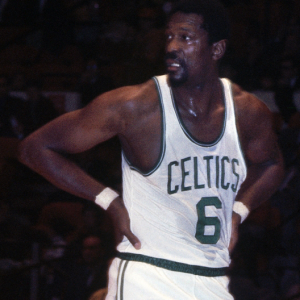 After the 1965 season, Bill Russell had the idea he was going to get close to 100 Gs in salary.
After the 1965 season, Bill Russell had the idea he was going to get close to 100 Gs in salary.
By this time Russell had already secured 8 championships and surely a pay day was on the horizon.
Russell, knowing his value, rejected Auerbach’s initial offer of $75,000 and even considered retirement. Negotiations went right down to the wire, with everything but the kitchen sink being offered to Russell.
Russell figured on the basis of all his championships, he was worth a dollar more a year than Wilt Chamberlain, who had just signed for $100,000 a year for three years.
Long story short, Russell got what he had earned. The psychology of contract negotiations could not overwhelm Russell’s psychology of self. Undeterred, proud and gutsy.
9. Weather the storm
The life of an NBA superstar is a rewarding but tough one. The ever-growing pressure that is put on your shoulders, the ceaseless scrutiny from spectators, and the resulting insomnia can get to even the best.
Being a Black NBA superstar in the ’60s, however, meant all those things and more.
Isolation and loneliness from nobody wanting to be seen with you in public coupled with constantly having to prove yourself not only as a player but as a man would wear any breathing person down.
But time and time again, Russell vowed that “no person in the world was ever going to chase me out of basketball or out of life.”
Each triumph prepared Russell for the next challenge. Whether it was psyching himself up for a low-stakes midseason game or standing in the middle of a Liberian jungle, with “Black Death” staring down the other end of his shotgun barrel, in search of answers to his own existence.
10. Prove them wrong
Bill Russell was a no-nonsense guy who demanded respect at the same rate he dished it out. So, if you were an opponent of truth or were the “cutie” who decided to test him in his paint, Russell was going to make sure you felt it.
Russell’s life could be possibly summed up by a metaphorical list of “reminders.”
He proved wrong the teachers at McClymonds High who started a pool on how long he would last in college. He proved wrong the NBA that he wasn’t going to be any team’s “laughing negro.” A sequence of reminders to himself and to the world that, when it was all said and done, he would not be remembered as a famous ballplayer or a wealthy man, but someone who “worshiped little and fought only for the rights of man, all men, all races, all religions”.
The overarching reminder of his life’s purpose.
Now cue “Forget Me Nots” by Patrice Rushen.
11. See what others don’t see
Toward the end of his memoir, Russell explores “the status quo” he has fought against his whole life. A status quo in which many compromises have been made over the span of lifetimes. Still, to Bill Russell, human rights could never be compromised. Either a man is free or he is not.
Therefore, Russell challenges the “squares” of society to have their own ideas for the present and the future. He argues if a man must be prejudiced, then let him acknowledge it and conquer it in the same breath. He challenges us to circle the boxes in our respective lives, communities, and professions.
Thank you for your life’s work, Mr. Bill Russell. Rest easy.
